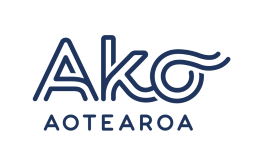


Jennifer Leahy
Sector Services Manager, South Island - Ako Aotearoa
Jennifer Leahy is a passionate and experienced educator dedicated to enhancing learning experiences through the design and delivery of impactful educational workshops and programmes. Currently serving as the Southern Sector Services Manager for Ako Aotearoa, she supports tertiary educators across the South Island through professional development and collaboration. Jennifer also advises adult and community education providers nationwide on the ACE Teaching Standards in her role with Adult and Community Education (ACE) Aotearoa.
Her career spans the tertiary education sector, the prison system, corporate training, and community organisations such as Pillars. She has taught and facilitated at institutions including the University of Canterbury, Ara Institute of Canterbury, and Ara Poutama Department of Corrections. Jennifer holds two master’s degrees in adult education and learning, and her commitment to lifelong learning remains at the heart of her work.
Jennifer has a strong record of community involvement, contributing to organisations such as Literacy Christchurch, the Books in Prison Trust, and the Christchurch Women’s Centre. She currently serves on the Canterbury Workers’ Education Association Council, the Community Research Board, the Graduate Women Canterbury Board, and the Celia Lashlie Trust.
A proud recipient of the 2020 ACE Aotearoa Educator of the Year Tangata Tiriti Award, Jennifer continues to champion equity, connection, and excellence in adult and community education.
The Impact of Trauma on Learning: Leading with Care in Complex Times | Ko te Pānga Pāmamae ki te Ako: Te Arataki me te Atawhai I nga wa Matatini
Drawing on twelve years of experience as an educator across three Christchurch prisons, Ako Aotearoa Southern Manager, Jennifer Leahy shares the insights and lessons she gained from working within these unique and challenging learning environments. In the private training sector, adult learners bring diverse life experiences into complex, rapidly changing environments. Many have experienced trauma through disrupted education, systemic barriers, or personal adversity which can significantly impact their ability to engage, learn, and succeed. This interactive workshop, The Impact of Trauma on Learning, explores how trauma-informed practice can improve learner outcomes by fostering safe, inclusive, and responsive environments. As providers navigate shifting learner needs, regulatory reforms, and workforce demands, both educators and leaders need to be equipped to respond holistically.
